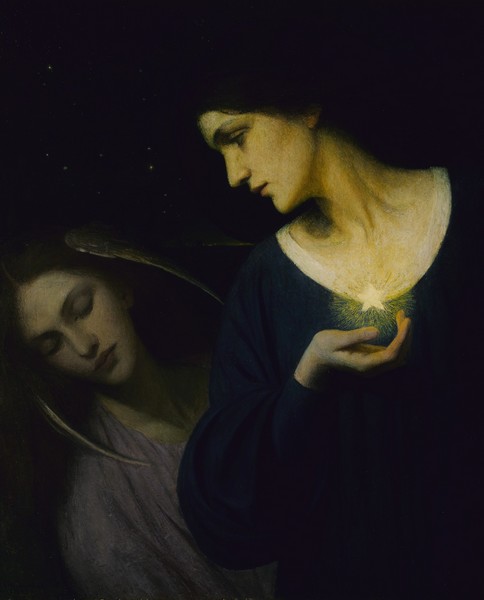
In February, when the recording of Jonas Kaufmann Wagner had just been released, on this blog we talked about songs written for female voice and sung by men and the other way around: the Wesendonck Lieder by Wagner, the Vier ernste Gesänge by Brahms or Frauenliebe und –Leben by Schumann. I didn't mention the Vier letzte Lieder because I didn't know by then of any tenor who had sung them, let alone a baritone. Anyway, as they say “… ignorance can be fixed…” and thanks to my friend I was able to listen to Konrad Jarnot singing Frühling, September, Beim Schlafengehen and Im Abendrot.
Strauss wrote many songs for soprano that are usually sung by men (we listened to Cäcilie and Befreit, for instance). So then, why is so strange that the Vier letzte Lieder are sung by a baritone? I don't think it is because of the poems which reflect peacefully on death because death doesn't know about genre. Is it because of the tradition? Because of the vocal line? Perhaps because of the orchestral accompaniment, so well weaved with the female voice?
Funnily enough, when I listened to the songs sung by the baritone for the very first time, it wasn't the voice that sounded strange to me but the piano accompaniment. Strauss wrote the songs with orchestral accompaniment and didn't make the piano version; the one that is played in this recording was made by Max Wolff and Ernst Roth some years after. I remember having heard it just once, in a recording by Waltraut Meier, and I didn't quite like it.
But I would say that in this occasion the accompaniment really works for the advantage of the listener: this rare piano version and the even less usual baritone version made me feel that I was listening, somehow, to new songs. Besides, as my friend told me, they were very well performed and it was easy to leave aside the prejudices; all in all I liked them very much, no matter how unusual they are. With soprano and orchestra the songs rise, and I can hear Strauss saying farewell to his operatic heroines (the Marschallin, Sophie, Daphne...); whereas with baritone and piano the music sounds closer and in my opinion it doesn't lose its emotion at all.
You will be able to form your own opinion when you listen to the sample I suggest, but before that, let me introduce briefly to this work that I will explain more in depth in another occasion. Three of the Vier letzte Lieder were composed between May and September 1948 on Hermann Hesse's poems; the fourth one, Im Abendrot, was written at the end of 1946 on a poem of Joseph von Eichendorff. It's not sure that Strauss wanted to write a cycle; he died in 1949 and his editor, Ernst Roth, gathered and reordered the songs and named them as "Last songs". Nowadays we know that Strauss wrote one more song, Malven, which is really his last one.
Here you have the beautiful Beim Schlafengehen (While going to sleep), the third of the four songs, performed by Konrad Jarnot and Helmut Deutsch. It tells us about the tiredness before going to sleep and the need of finding rest. Doesn't the last verse remind you of the last one of Mondnacht by Schumann?
Nun der Tag mich müd gemacht,
soll mein sehnliches Verlangen
freundlich die gestirnte Nacht
wie ein müdes Kind empfangen.
Hände, laßt von allem Tun,
Stirn, vergiß du alles Denken,
alle meine Sinne nun
wollen sich in Schlummer senken.
Und die Seele unbewacht
will in freien Flügen schweben,
um im Zauberkreis der Nacht
tief und tausendfach zu leben.
Now that the day has made me so tired,
my dearest longings shall
be accepted kindly by the starry night
like a weary child.
Hands, cease your activity,
head, forget all of your thoughts;
all my senses now
will sink into slumber.
And my soul, unobserved,
will float about on untrammeled wings
in the enchanted circle of the night,
living a thousandfold more deeply.
(translation by Emily Ezust)














Comments powered by CComment